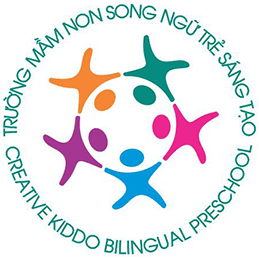Content
These negative emotions can drastically affect one’s outlook on life, shifting to a perspective that cannot appreciate small joys, successes, or blessings. Journaling has a long-established history as a tool for self-discovery and healing. Journal therapy is a part of many kinds of counseling and group work, but anyone can use a journal to explore gratitude and recovery feelings, process events, and create conditions for change. For people working toward recovery, a journal can be a place to track progress, uncover causes for addiction, and figure out new ways of dealing with stressful situations. Gratitude doesn’t just happen, but it can be easy to develop, just by being mindful as you move through daily life.
- Addiction experts agree that gratitude can strongly influence a person’s chance for a successful recovery from any kind of addiction.
- She spends most of her free time exploring the Catskill Mountains foraging for edible/medicinal mushrooms and plants, and spreading the message of radical compassion through Harm Reduction.
- And just as with any other habit, with regular practice, grateful thoughts can become your everyday way of thinking.
- You could draw, write, paint, garden, smith, smash pumpkins, whatever.
Another bill recently passed in the Senate will allow SUD peer counselors to bill for tele-health like all other health care providers. Meghan is currently working as a Peer Recovery Support Specialist for WEConnect Health Management. Her focus as an advocate is on Harm Reduction and ending the racist War on Drugs. She spends most of her free time exploring the Catskill Mountains foraging for edible/medicinal mushrooms and plants, and spreading the message of radical compassion through Harm Reduction.
What does gratitude mean in addiction recovery?
However, the recovery community has known the power of gratitude for a long time. More than creating a gratitude list, actively practicing gratitude has always been essential to recovery success. A feeling of gratitude is similar to a sense of solid appreciation. When you practice gratitude, you make a conscious effort to recognize the things, people and actions in your life you should be thankful for.
It can remind you of how far you’ve come and all you’ve done to get to this stage of recovery. Now that you know what practicing gratitude is and how it can help you, here are five easy ways to incorporate it into your recovery journey. “Practice gratitude” is one of those platitudes that seems like it belongs in script on a wall next to Live, Laugh, Love. And while it may sound a bit “hippie” and spiritual, this valuable practice is strongly encouraged by most therapists and counselors. In particular, individuals are urged to practice gratitude in recovery. With Thanksgiving quickly approaching, many of us may be reflecting on people and circumstances in our lives that we are grateful for.
Spread the Gratitude
These are the things — big or small — that make you feel lucky and have helped guide you in the right direction. So how exactly does someone practice gratitude and know they’re doing it right? Figuring that out is a natural first step in the mindful gratitude journey. Here’s a breakdown of what practicing gratitude is and five concrete ways you can do it.

As you practice gratitude in recovery, it’s also important to remember the bad times. Even if today wasn’t your best, have perspective on how far you’ve come. Your progress is an achievement, and you can only appreciate the good when you acknowledge the bad. Mr. Kent previously served as the General Counsel for the New York State Office of Addiction Services and Supports (“OASAS”). In this role, Mr. Kent provided overall legal support, policy guidance and direction to the OASAS Commissioner, the Executive Office and all divisions of the agency. Robert has co-authored articles on patient confidentiality and sober homes and has presented nationally and throughout New York State on the OASAS system of care.
Individualized, evidence based treatment, to fit your needs.
This multiplies and before you know it your life is beyond your wildest dreams. There are many guided meditations on different meditation apps or YouTube that are free. This will not only help you calm your mind but also find things to be grateful for you may overlook.
Prior to joining FOR-NY, Ms. Weingarten served as an Empire Fellow at both the New York State Division of Budget (Nonprofit Coordination Unit) and the New York State Commission on National and Community Service. She was the Program Director for the After School Enrichment & Summer Discovery Day Camp at the Queens Community House (QCH) in Forest Hills, New York. Prior to working for QCH, Allison served as Legislative Director of the NYS Assembly Subcommittee on Workplace Safety under its Chair Assembly Member Rory Lancman (now, a New York City Councilman).
Gratitude Can Help You Alleviate Self-Blame
“Obviously it’s never an easy thing to go through, but she’s remaining positive and focusing on the future,” the insider added. Stevie is on the mend, growing stronger with each passing day, thanks to the support of her community’s youngest members. Young M.A has opened up about the health scares she experienced in recent years that have left fans concerned for the rapper’s well-being.
- We provide treatment services for adults with alcohol, opioid, and other substance use disorders.
- Understanding the positives that sobriety brings and equally recognizing the harm substance abuse causes in all aspects of life are traits strengthened by gratitude.
- Practicing gratitude will help your life in many ways, including strengthening your recovery.
- He is a National Advisory Council member for the Hogg Foundation for Mental Health in Texas and the National Center on Advancing Person-Centered Practices and Systems.
Taking time to say “thank you” to your partner or even to your employees has been demonstrated to improve how you work as a team. Addiction can be isolating, and it creates pain and misunderstanding in relationships of all kinds. Being able to communicate clearly about your recovery experience and to ask for help when you need it can strengthen relationships and solve problems. Addiction keeps a person stuck in an unpleasant “now” that revolves around getting your next fix. But in recovery, it’s possible to recover hope for the future and to look forward to doing new and better things.
